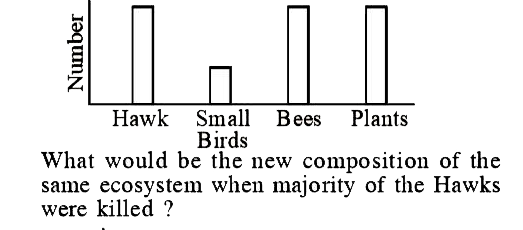What is composting?
Step-by-Step Solution:
1. Definition of Composting: Composting is a natural process where organic materials, such as food scraps and yard waste, are decomposed by microorganisms. This process transforms these materials into simpler organic and inorganic compounds.
2. Purpose of Composting: The main purpose of composting is to manage waste effectively. It helps in reducing the amount of organic waste that ends up in landfills.
3. Composition of Compost: The end product of composting is called compost. This compost is rich in nutrients and contains humus, which is a dark, organic material that improves soil quality.
4. Benefits of Compost:
- Nutrient-Rich: Compost provides essential nutrients to the soil, which are necessary for plant growth.
- Improves Soil Fertility: By adding compost to the soil, it enhances its fertility, making it more productive for growing plants.
- Increases Water Retention: Compost helps the soil retain moisture, which is beneficial for plants, especially during dry periods.
5. Organic vs. Inorganic Materials: It is important to note that composting involves only organic materials. Inorganic materials do not decompose in the same way and are not suitable for composting.
- Nutrient-Rich: Compost provides essential nutrients to the soil, which are necessary for plant growth.
- Improves Soil Fertility: By adding compost to the soil, it enhances its fertility, making it more productive for growing plants.
- Increases Water Retention: Compost helps the soil retain moisture, which is beneficial for plants, especially during dry periods.
Topper's Solved these Questions
- HEALTH AND HYGIENE BOOK - ICSECHAPTER - HEALTH AND HYGIENE EXERCISE - Exercises(Answer the following in detail.)
6 Videos
- HEALTH AND HYGIENE BOOK - ICSECHAPTER - HEALTH AND HYGIENE EXERCISE - Exercises
1 Videos
- HEALTH AND HYGIENE BOOK - ICSECHAPTER - HEALTH AND HYGIENE EXERCISE - Exercises(Circle the odd one. Give reasons for your choice.)
5 Videos
- HEALTH AND HYGIENEBOOK - ICSECHAPTER - HEALTH AND HYGIENEEXERCISE - THEME ASSIGNMENT ( CROSSWORD PUZZLE - DOWN)
1 Videos
- PRACTICE ASSIGNMENTBOOK - ICSECHAPTER - PRACTICE ASSIGNMENTEXERCISE - PRACTICE ASSIGNMENT 8 (Based on Chapter - 8 Adaptation) (Mark (T) for the correct statements and (F) for the incorrect ones.)
5 Videos
Similar Questions
is it true that composting is a useful method contributing in farming ?
View SolutionHow has composting proven to be great help in managing waste ?
View SolutionWhat is osmosis ? What is the difference between osmosis and diffusion?
View Solutionwhy is Fe0(s) not formed in stoichiometric compostion ?
View Solutionwhy is Fe0(s) not formed in stoichiometric compostion ?
View Solution3 L mixture of propane and butane on complete combustion at 298 K gave 10 L CO2 Calculate the compostion of the gas mixture.
View SolutionWhat is a couple? What is its action?
View SolutionGive differences between the following:
Dumping and composting
View SolutionWhat do you mean by the following terms ?
Composting.
View SolutionIn an ecosystem, four major interdependent components were in the given proportions :

what would be the new compostion of the same ecosystem when majority of the hawks were killed ?
View Solution
